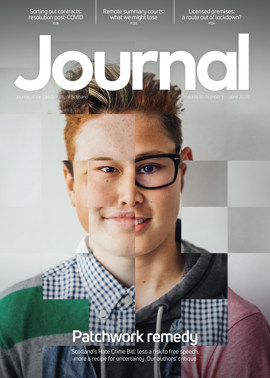Anti-doping during the pandemic
Due to the pandemic there is no sport taking place and major events, like EURO 2020 and the Tokyo Olympics and Paralympics, have been postponed or cancelled. However, the world of sport has not stopped entirely. Many athletes continue to train in isolation, and anti-doping organisations (ADOs) continue to test athletes. This is of particular importance to ensure that once sport resumes, athletes and fans can be sure that competition is clean and fair.
The World Anti-Doping Agency (WADA) stated that there are no plans to change existing requirements under the World Anti-Doping Program. WADA fully acknowledges the complexities of this unprecedented situation and will work to ensure that its compliance monitoring programme provides a level of flexibility based on circumstances. Deadlines for reporting, meeting ongoing requirements or completing corrective actions may be affected.
Testing during the pandemic
WADA has stated that testing will continue where no mobility or physical contact restrictions have been put in place by local authorities: thus testing may still occur any time, and anywhere. If testing can continue, ADOs need to put enhanced measures in place to protect the health of athletes and sample collection personnel. ADOs have been advised to conduct only the most critical doping controls. If testing can continue, but the situation in the country is not fully stable, ADOs will focus their testing programme on targeted athletes from high risk sports and disciplines, including those in their registered testing pool (RTP), and prioritise urgent missions.
WADA has said that athletes cannot refuse to complete a test unless there is a mandatory isolation or lockdown in place. Athletes are advised by WADA to comply with testing while following the preventative measures put in place by their ADO. If athletes refuse to be tested or do not complete the sample collection process after notification, or if they are not able (or willing) to provide a sample due to a lack of protective measures, their refusal will follow the normal results management process which affords them due process and the opportunity to justify their actions.
If athletes are concerned that they may have contracted the virus, they should prioritise their health. In an anti-doping context, they should advise the relevant ADO of their situation with their whereabouts submission or when doping control personnel notify them for testing, so that they can adjust their plans accordingly.
TUEs, whereabouts and ADO activities
As long as athletes remain subject to testing, they remain responsible for ensuring they have a valid therapeutic use exemption (TUE). If they have difficulty accessing doctors during the pandemic to secure necessary documentation to support their TUE application, they should document all actions and impediments to complying with the relevant requirements, and this will be considered on a case-by-case basis. There is the ability to request a retroactive TUE in exceptional circumstances, as described in the International Standard for Therapeutic Use Exemptions.
Unless the ADO notifies otherwise, athletes should continue to provide whereabouts information as they remain subject to testing. If they wish to share information about their health, self-isolation or mobility restrictions, which may impact doping controls, they are encouraged to share this with their whereabouts submission.
ADOs are being allowed an element of discretion to determine how their other activities will be impacted, including investigations, and results management. ADOs may look at additional ways of continuing certain activities. For example, hearings may be conducted via videoconferencing. ADOs can continue to collect and assess any information and intelligence received which may result in an investigation or target testing.
Post-COVID
WADA is closely monitoring where levels of testing have been reduced or cancelled. When the sporting landscape returns to normal, these gaps in testing may be addressed through additional targeted testing.
WADA acknowledges that placing public health above the anti-doping system means that there will be impacts on the fight against doping. However, there are significantly fewer competitions taking place. It is also important for athletes to remember that doping control samples continue to be stored for future analysis, and that with the athlete biological passport (ABP), some samples collected post-COVID-19 may reveal indications of doping that occurred during the period.
Some doping manipulations or substance intakes have longlasting effects, or remain detectable in the body long enough that they can be revealed by an efficient ABP program or specific types of analysis. ADOs will plan the collection of ABP blood samples on sports that are part of existing ABP programmes as soon as the situation returns to normal.







